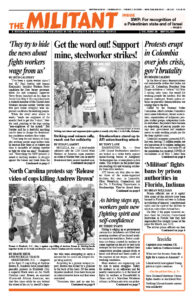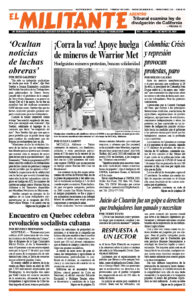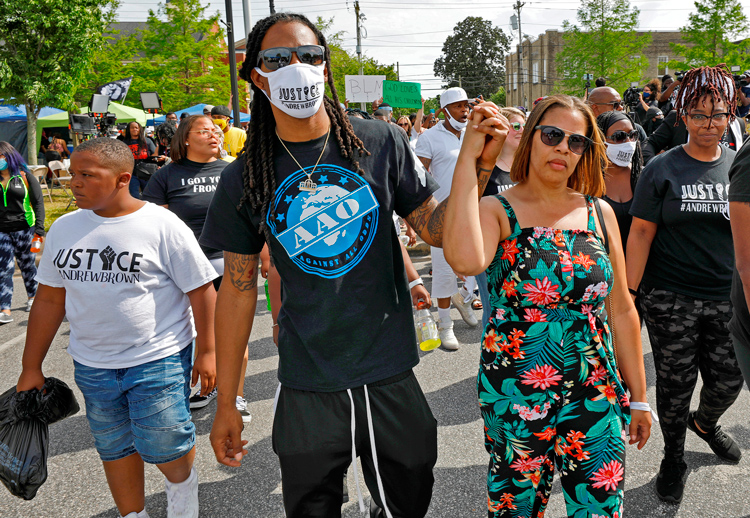GREENSBORO, N.C. — Angered at the April 21 cop killing of Andrew Brown Jr., hundreds have joined daily peaceful protests in Elizabeth City, a majority-Black town on the North Carolina coast. Brown, an unarmed 42-year-old African American, was shot five times while he was behind the wheel of his car by sheriff’s deputies who were attempting to serve a warrant for his arrest on alleged illegal drug activity.
According to a private autopsy report, Brown was killed by a gunshot to the back of his head. Of the seven deputies involved, three have been put on administrative leave and four were reinstated.
“Seventeen days and no one has been arrested? Something is wrong,” Glenda Brown, Andrew’s aunt, told a May 9 rally.
Demonstrators have called for the arrest of the deputies involved in the shooting and the release of their body camera footage. Protesters have traveled to Elizabeth City from Virginia and other parts of North Carolina to take part in the actions. There have been smaller solidarity actions in other parts of the state.
Authorities allowed Brown’s family to view only 20 seconds of the cops’ body camera footage last month. On May 6 a judge ruled they would be allowed to see just under 20 minutes.
After seeing that excerpt May 11, Brown’s son, Jha’rod Ferebee, said that his father “did not deserve to get killed. In any way, shape, or form, he did not pose any threat at all.”
“Twenty seconds, not enough. Twenty minutes, not enough,” Glenda Brown said May 9. “We want to see the whole tape.”
Under North Carolina law a judge has to order the release of footage from body-worn cameras. In this case Judge Jeffrey Foster refused the Brown family’s request after authorities argued it would jeopardize their investigation. Since then the family has called for the law to be changed.
Under pressure from ongoing demonstrations, various politicians, including Gov. Roy Cooper, have backed those calls. Changing the law would effect other cases in the state involving African Americans who died in police and prison custody.
Despite the lack of looting, arson or violence at demonstrations, a curfew was imposed by city authorities. Classes at Elizabeth City State University were shut down and students were left to study online. Students at one dormitory were made to leave so 13 police officers from out of town could be housed there. That arrangement was ended when it became public.
During one demonstration against Brown’s killing, legal observers were arrested after being pulled out of their car. Charges against them were later dropped.
The curfew has since been lifted, but a state of emergency is in place ahead of possible release of the body camera footage. Permits are now required for each demonstration. National organizations opposing these restrictions include the NAACP and the American Civil Liberties Union. Clergy led a demonstration May 8, with over 100 representatives from around the region.
Protesters say they’ll continue marching.


